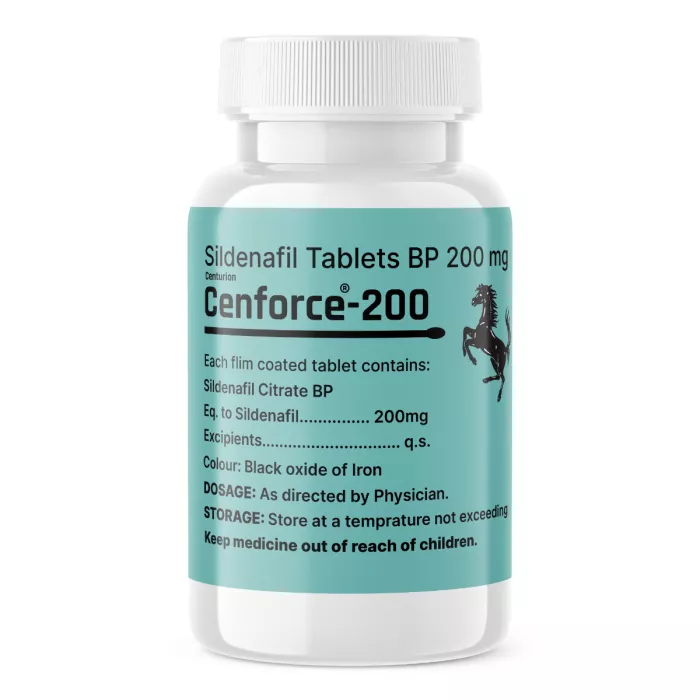Erectile Dysfunction (ED) affects millions worldwide, yet it remains a topic many avoid discussing openly. The number of people with ED is rising, especially in developing regions. An estimate of 322 million people for 2025 shows just how common this condition is.
Despite its prevalence, the stigma around ED often causes unnecessary anxiety and silence. But Erectile Dysfunction is not a sign of weakness or failure. It’s a medical condition that anyone can experience and is often treatable.
If your partner has ED, you can help by being supportive and understanding. Talk openly about feelings and concerns. Encourage your partner to see a doctor.
Talking about ED openly helps break down the shame and encourages men to seek the support they deserve. Let’s break the stigma together and explore what Erectile Dysfunction really means, why it happens, and how it can be managed. Read on to learn more.
What is Erectile Dysfunction?
Erectile Dysfunction means difficulty getting or keeping an erection firm enough for sexual activity. Sometimes, people call it impotence.
ED is not just a part of getting older. It can influence your confidence, relationships, and overall well-being. Understanding what Erectile Dysfunction is is the first step toward finding solutions.
ED can happen sometimes, but if it happens often, it may be a sign of a health problem.
Save up to 90% on your medicine bills

Cenforce 200 mg

Kamagra Oral Jelly Rx 100 mg

Fildena 100 mg

Vidalista 60 mg
Signs and symptoms of Erectile Dysfunction
Knowing the signs of Erectile Dysfunction can help you seek support sooner if you notice them early:
- Trouble getting an erection
- Difficulty keeping an erection during sexual activity
- Less interest in sexual activity
If you notice symptoms of Erectile Dysfunction, understand that this is a common experience for many individuals throughout their lives. These signs of ED may come and go. Or they may become steady. Either way, it’s good to talk to a doctor if you see these changes.
Causes of Erectile Dysfunction
ED can have different causes. Identifying the causes of Erectile Dysfunction allows you and your doctor to find the most effective solution.
Physical causes
Many health problems can lead to ED. Some common physical ED causes include:
- Heart disease
- High Blood Pressure
- Diabetes
- High cholesterol
- Obesity
- Smoking or drinking too much alcohol
- Certain medications
- Hormone problems like Low Testosterone
These health issues can affect blood flow or nerve signals, making it harder to get an erection.
Psychological causes
Your mind and emotions also play a role. Psychological causes of ED can include:
- Stress
- Anxiety
- Depression
- Relationship problems
- Past trauma
- Low self-esteem
Sometimes, a mix of both physical and psychological factors can cause ED.
Diagnosis
If you think you have ED, a doctor can help. Diagnosis often starts with a talk about your health and symptoms. The doctor may ask about your medical history and lifestyle. They may also do a physical exam.
There is no single Erectile Dysfunction test. Several tests can help find the cause of ED:
- Blood tests to check for health issues
- Urine tests for signs of Diabetes
- Ultrasound to see blood flow in the penis
- An overnight erection test to see if you have erections while you sleep
These tests help your doctor find the causes and choose the right ED treatments for you. Always share complete details with your doctor. It helps them offer the right treatment.
Complications if left untreated
Not treating ED can lead to:
- Relationship stress
- Low confidence
- Poor quality of life
Sometimes, it may signal a more serious health problem like heart disease. That’s why early diagnosis is key.
Treatment options for Erectile Dysfunction
Many safe and effective ED treatments are available. Your treatment depends on what’s causing it. Your doctor can help you choose the best therapy option for your needs.
Lifestyle changes
Simple changes can help improve ED:
- Eat healthy foods
- Exercise regularly
- Quit smoking
- Limit alcohol
- Manage stress
These changes are good for your health and part of good Erectile Dysfunction self-care.
Good habits now can help you avoid ED symptoms later. Following these steps will help to prevent or lower the risk of ED for anyone who doesn’t have it yet. Additionally, getting enough sleep and having regular check-ups with a doctor are important factors in maintaining this health.
Psychological counseling and therapy
If stress, anxiety, or depression are causing ED, talking to a counselor can help. Therapy can give you techniques to handle stress and improve your relationships. Talking to a trained counselor can:
- Ease anxiety
- Improve confidence
- Help your relationship
This is a safe and effective Erectile Dysfunction treatment when mental health is a factor.
Medications
Several medications for Erectile Dysfunction are available. These help improve penile blood flow.
These include:
These ED medications start working within 30 to 60 minutes. Some last for a few hours, others for a full day. They are proven, reliable, and has the approval of the Food and Drug Administration (FDA). Some people may look for Erectile Dysfunction gummies or tablets but always check with your doctor before trying new products.
Each medicine works in a slightly different way. For example, Sildenafil acts faster, while Tadalafil lasts longer. Some people may prefer one over the other based on how quickly they want results or how long they want the effect to last.
All these medications are effective, but side effects and personal needs may differ. Your doctor can help you find the best medicine for Erectile Dysfunction without side effects for your situation.
Devices
If pills do not work, a vacuum device, sometimes called a vacuum pump, may help some people.
The best vacuum pump for Erectile Dysfunction is easy to use and fits your needs. These pumps draw blood into the penis, helping you achieve an erection. A ring keeps it in place during sexual activity.
They are safe, non-invasive, and easy to use with training.
Surgical options
Surgery is rare but may help if other treatments do not work. Options include
- Penile implants
- Blood vessel surgery
Surgery is usually only for people who do not respond to other treatments.
Addressing underlying health conditions
Treating the underlying health issues causing ED, such as Diabetes or High Blood Pressure, can often improve symptoms. Doctors may adjust medications that negatively impact sexual health, so always discuss these options with your healthcare provider.
Recent research highlights promising new ED treatments, including Low-intensity Extracorporeal Shockwave Therapy (Li-ESWT), which has shown positive results in improving erectile function with effects lasting up to 12 months. Additionally, new medications like the combination of Bremelanotide with PDE5 inhibitors are in phase 2 trials for those who don’t respond to current treatments.
While some individuals may find a permanent cure by addressing health conditions or lifestyle choices, others may require ongoing assistance. Treatment for ED varies from person to person, and no single solution fits everyone. Always consider FDA-approved treatments and consult your doctor about potential new options.
Conclusion
Erectile Dysfunction (ED) is quite common, and it’s nothing to be ashamed of. Realizing what ED is, recognizing its signs, and knowing the causes, both physical and emotional, are critical first steps toward finding relief.
Many health problems, like heart disease, Diabetes, or stress, can play a role, but ED doesn’t mean your sex life is over. From healthy lifestyle changes to therapy, medication, devices, and even surgery, there are many ways to manage ED. New treatments are also being studied, bringing even more hope.
Most importantly, ED is not just a private issue. It can affect your relationships, self-esteem, and quality of life. Talking about it and getting help is a sign of strength, not weakness. The more we speak openly about ED, the more we support each other in finding real solutions and living fully.

Frequently Asked Questions
Can a guy with ED have kids?
Yes, a guy with ED can have kids. ED means trouble getting or keeping an erection, but it does not stop sperm from being made. If sperm is healthy, someone can still father a child. Many treatments can help you if you want to have children.
Can a man with Erectile Dysfunction satisfy a woman?
Yes, a man with ED can satisfy a woman. Satisfaction in a relationship comes from many things, like love, closeness, and communication. ED may affect physical intimacy, but it does not stop you from giving or receiving emotional connection and pleasure in other ways.
How can I tell if physical or mental health issues cause my ED?
To determine if your ED is physical or mental, note when and how it occurs. Persistent issues may indicate physical causes, while problems in specific situations could suggest mental factors. Consulting a doctor can provide better clarity and understanding of your condition.
Are there specific medications that might be contributing to my ED?
Yes, some medications can cause ED. If you take medicine for blood pressure, depression, or allergies, it might affect your ability to have an erection. Talk to your doctor if you think your medicine is causing ED. They can help you find a better option for you.














